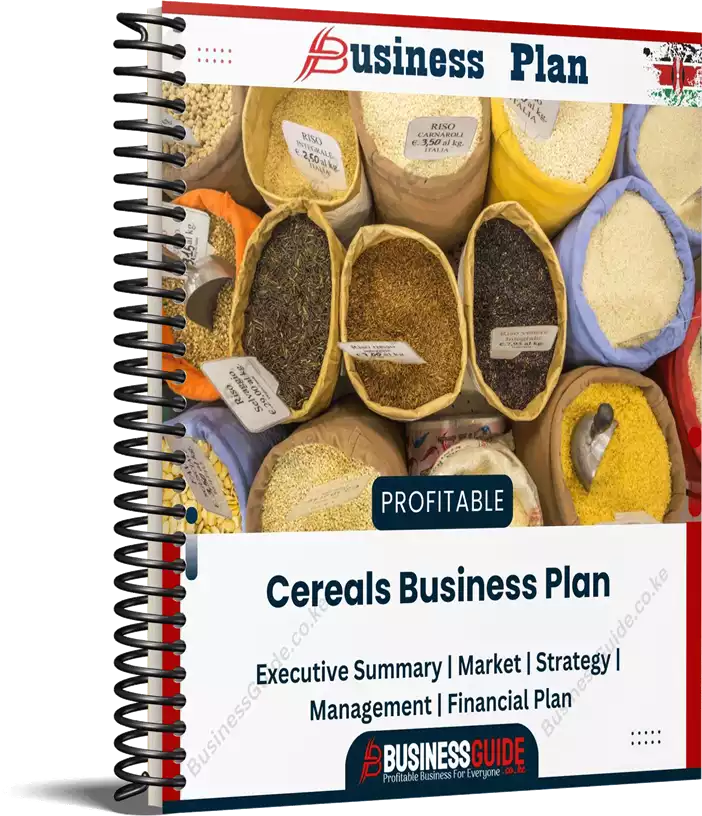Start Your Cereals Business in Kenya with Our Comprehensive Business Plan!
Are you eager to enter the thriving cereals market in Kenya? Our Cereals Business Plan PDF – Kenya is designed to help entrepreneurs like you navigate the opportunities and challenges of this essential industry.
Why Choose Our Business Plan?
Comprehensive and Informed: This business plan provides thorough insights into the cereals industry, enabling you to make strategic and informed decisions.
What You Will Learn: Our plan covers crucial elements such as:
- Market Analysis: Assess the demand and supply dynamics of cereals, identifying target markets and customer segments.
- Regulatory Requirements: Understand the necessary licenses, inspections, and food safety standards for operating a cereals business in Kenya.
- Product Offerings: Explore the types of cereals you can produce and sell, including various grains and processed products.
- Marketing Strategies: Develop robust marketing strategies to reach potential customers and stand out in the market.
What’s Included in the Business Plan?
- Executive Summary: A brief overview of your business goals and vision.
- Industry Overview: Insights into the current trends and landscape of the cereals market in Kenya.
- Operational Plan: Detailed strategies for production, supply chain management, and quality control.
- Financial Projections: Comprehensive forecasts, including revenue projections, cost analysis, and funding requirements.
- Risk Management: Identification of potential risks and proactive strategies to mitigate them.
Your Path to Prosperity: Our Cereals Business Plan PDF – Kenya equips you with important tools and insights necessary to build a successful cereals business that nourishes communities. Start your journey toward a rewarding business endeavor today!
Get Started Now! Download our Cereals Business Plan PDF – Kenya and utilize the insights provided to effectively launch your cereals venture!
You will need to obtain licenses from local food safety authorities and comply with health regulations.
You can produce various grains such as maize, wheat, millet, and processed cereal products.
Use surveys, focus groups, and market analysis to understand consumer preferences and market demands.
Start-up costs vary based on production scale, equipment, and initial inventory; a detailed budget is included in the plan.
Implement quality assurance protocols and regular testing of raw materials and finished products.
Consider digital marketing, community outreach, and partnerships with retailers to enhance visibility and sales.
Establish clear communication and negotiate favorable terms to ensure reliable sourcing of quality raw materials.
Challenges include price fluctuations, competition, and regulatory compliance.
Yes, specialized equipment for cleaning, milling, and packaging cereals is essential.
Focus on local sourcing, efficient production practices, and building strong customer relationships for long-term success.






